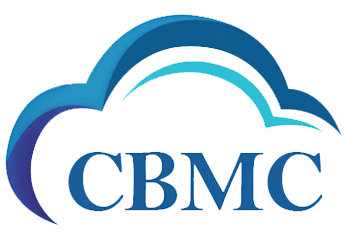Choosing a business structure remains a vital step for every founder. Pakistan has introduced many reforms through the Securities and Exchange Commission of Pakistan. These changes aim to simplify the process for new startups. You must decide between a private limited company and a traditional partnership. Each path offers different benefits for your unique vision. This blog will guide you through the latest legal shifts. We will help you find the best fit for your goals.
The Core Difference Between a Company and a Partnership Firm
A Private Limited company acts as a separate legal person. It exists independently of the people who own it. A partnership firm operates under a different set of rules. It is not a separate legal person under the law. The business and the owners are seen as one entity.
This distinction leads to a major point about personal safety. Owners in a company enjoy limited liability protection. Their personal assets stay safe if the business faces debts. Partners in a firm often face unlimited liability instead.
Pvt Ltd vs Partnership in Pakistan Under New Reforms
The SECP has modernized the registration process for all companies. You can now register a company entirely through online portals. This makes it faster than the old manual system. A Pvt Ltd vs Partnership in Pakistan choice depends on your growth plan. Companies must follow strict rules for filing and reporting. This ensures a high level of transparency and trust.
Partnerships are usually registered with the local registrar of firms. This process is often seen as less formal than SECP registration. However, recent reforms encourage businesses to move toward corporate forms. The SECP aims to build a more documented economy for everyone.
Comparing SMC Pvt Ltd vs Partnership Firm
A Single Member Company or SMC is a unique option. It allows one person to enjoy corporate benefits alone. This structure is great for solo founders or freelancers. An SMC Pvt Ltd vs partnership firm comparison shows clear trade-offs. A partnership requires at least two people to start. An SMC gives one-person total control over every move.
SMC Pvt Ltd Benefits:
- Full control stays with one owner.
- Personal assets are protected by law.
- The business continues even if the owner leaves.
Partnership Firm Benefits:
- Multiple people share the workload and ideas.
- Setup costs are usually lower for beginners.
- Internal rules are flexible and easy to change.
Analyzing Partnership vs Pvt Ltd Taxation
Tax rules play a huge role in your final choice. Partnership vs Pvt Ltd taxation varies based on how profits are shared. A partnership is often taxed as an Association of Persons. This means the firm pays tax on its total income. The partners then receive their share without further personal tax.
A Private Limited company pays a fixed corporate tax rate. This rate is currently around 29 percent for most entities. When the company pays dividends to shareholders, more tax applies. This is known as the dividend tax. It might seem higher at first glance. However, companies enjoy more ways to claim business expenses. This can lower the total taxable amount significantly over time.
Comparison: Private Limited Company vs. Partnership Firm
| Feature | Private Limited Company | Partnership Firm |
| Tax Entity | Separate Corporate Entity | Association of Persons (AOP) |
| Tax Rate | Standard Corporate Rate | Slab based on Income |
| Audit Need | Mandatory Annual Audit | Usually not required |
| Filing Requirements | SECP and FBR | FBR only |
Navigating LLP vs Pvt Ltd vs Partnership
The Limited Liability Partnership, or LLP, is a newer choice. It blends the best parts of both worlds. An LLP vs Pvt Ltd vs partnership debate focuses on flexibility. An LLP provides limited liability like a company. Yet, it maintains the internal freedom of a partnership. This makes it perfect for professional service providers.
Lawyers and consultants often prefer the LLP model today. It requires registration with the SECP, just like a company. However, it does not need a board of directors. The partners manage the business directly without heavy red tape. This structure is gaining traction due to recent SECP reforms.
Why Professional Advice Matters for Your Startup
Choosing the right path requires a deep look at the law. Many founders make mistakes during the initial setup phase. CBM Consultants specializes in helping entrepreneurs navigate SECP and FBR rules. We ensure your business complies with the latest 2026 regulations. We also offer tax planning to save your hard-earned money.
Conclusion
Choosing the right structure is a major milestone for any entrepreneur. Your choice between a private limited company and a partnership firm will define your future. It affects your personal risk and your tax savings. It also changes how you grow and bring in new investors. The SECP reforms of 2026 have made the corporate path much easier. You can now enjoy legal safety with less effort than before.
